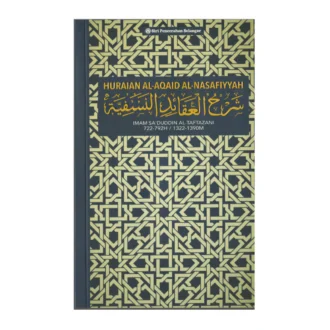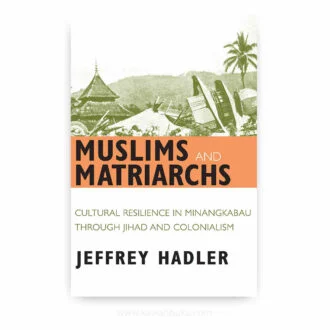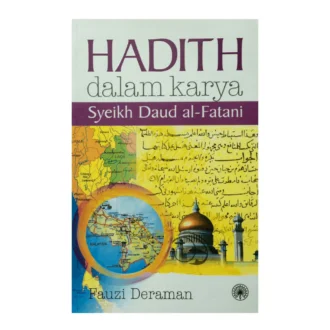Modern Islamic Political Thought provides the reader with a good outline of the Islamic ways of dealing with politics. Enayat delineates the changes that have occurred in this approach since the confrontation with the West, focusing on two topics: the concept of the Islamic State and the Muslim response to the challenge of modern ideologies—democracy, nationalism, and socialism. Modern Islamic Political Thought opens with an outline of the way in which the traditional Islamic heritage has impinged on the development of modern thought. The writer sees, as one of the remarkable changes in the Muslim mentality since World War II, a growing trend in the direction of awareness that no political idea, however valid and vital for the freedom and prosperity of Muslims, can mobilize them in a successful movement to cure their ills unless it is shown to conform in both form and substance to the dictates of their religious consciousness.
This book deals then with the ideas of those Muslim writers who have been mindful of the necessity of this conformity, and in whose formation the legacy of Islamic culture, particularly the tradition of political thinking as a subsidiary element of the Shari’ah, has played the largest part. He sees, therefore, a survey of the basic strands of that tradition as essential for the understanding of the main issues in modern Islamic political thought.
Hamid Enayat states that the revival of the Sunni and Shi’i political thought in our age has been focused on four basic themes: breaking the spell of the sanctity of the status quo, rejecting the corrupting realism of medieval writers, historical criticism, and salvaging the democratic and socialist elements of the past. In the first chapter, he studies the differences between the political theory of the two main sects in Islam-Shi’ism and Sunnism-and the twofold process of conflict and concord between them, from confrontation to cross-sectarian fertilization. The combination of particularism, esotericism, historicism, idealism, a pessimistic conception of human nature, a paradoxical apathy in politics, and emotionalism constitutes, according to him, the basic mood of historical Shi’ism in contradistinction to Sunnism.
The following chapters deal with the concept of the Islamic State from the time it was revived after the abolition of the Caliphate in Turkey in the twenties till the late seventies and the Muslim response to the challenge of the alien, modern ideologies of nationalism, democracy, and socialism. The crisis over the Caliphate had as a doctrinal
result that it introduced the idea of the Islamic State as an alternative to the Caliphate. This idea moved into the center of religiopolitical thinking. As causes that prompted that shift, the author mentions the combination of circumstances arising from the traditional response to the secularization of Turkey, the aggressiveness of some Western powers, the setbacks to secular-liberal ideologies in Egypt, and the consequences of the Palestinian crisis.
The chief vehicle through which the concept was canvassed was fundamentalism. Hamid Enayat exposes the ideas of Muhammad Rashid Rida and those of his fundamentalists “successors”: The Muslim Brothers in Egypt, the Jama’at-i-Islami in Pakistan, and thinkers like Sayyid Qutb, Mustafa Siba’i, and Abul-Ala Maududi. In contrast to these issues debated in the first chapters, nationalism, democracy, and socialism have been forced upon the Muslim mind from outside from Western challenge to the credibility and integrity of Islam as a total ideology. At the end of that particular chapter, he draws attention to the “popular mentor of Islamic radicalism,” ‘Ali Shari’ati.
In the final, maybe most valuable chapter, he reviews three further examples that relate specifically to the developments of Shi’ism in modern times, the new phase of Shi’i dynamism, as he calls it. He studies three revised notions in modern Shi’ism namely constitutionalism, taqiyya, and martyrdom. The Constitutional Revolution represents the first direct encounter in modern Iran between traditional Islamic culture and the West. The Shi’i modernist views on taqiyya present one of the rare examples of genuine critical thinking in present-day Islam. In the last section, he speaks of the martyrdom of Imam Husayn and how during the last ten years or so the quiescent character of the drama of Karbala’ has started to change at the hands of a number of Shi’i modernists who would not forego its obvious potentials as a rhetorical instrument of political mobilization.
Modern Islamic Political Thought is indeed a study of the development of political thought, an Ideengeschichte (history of ideas) more than history. That makes it sometimes unsatisfactory when one reads the sometimes too quick references to historical data the writer gives as it were in the margin. For instance, his remarks on the Muslim Brothers in Egypt and their attitude towards Gamal ‘Abd al-Nasser and his attitude towards them is much more complex than is suggested. The author introduces the concept of fundamentalism but should have tried to define this concept properly and argued if it is acceptable to use this term in an Islamic context. It seems that the author treats the Azhar and the Azharites too much as a monolithic block, not giving enough room for their internal dissension.
It is very interesting to read his treatment of the Rasa’il of the Ikhwan as-Safa and their use of the literary symbolism as a vehicle of political expression. One is reminded of the way in which modern Egyptian authors like Taha Husayn and Nabuib Mahfuz have exploited this genre. Most interesting of this well-written book is the concluding chapter where the way in which the image of Husayn is seen both by Sunni’s and Shi’is is very well described.











Reviews
There are no reviews yet